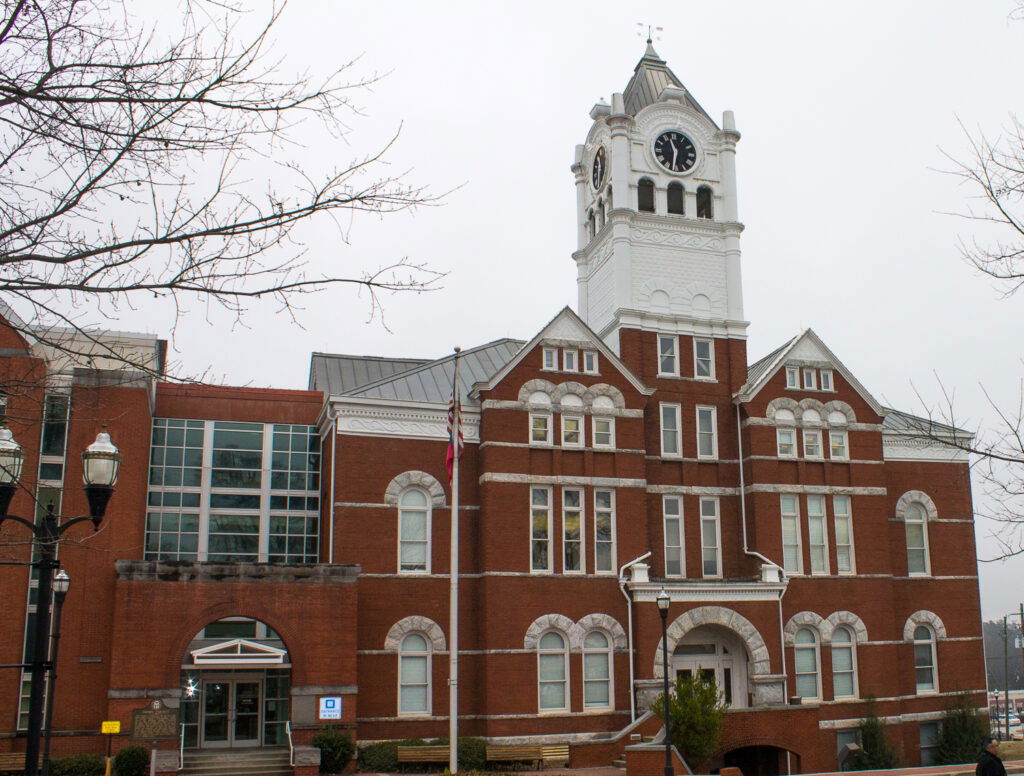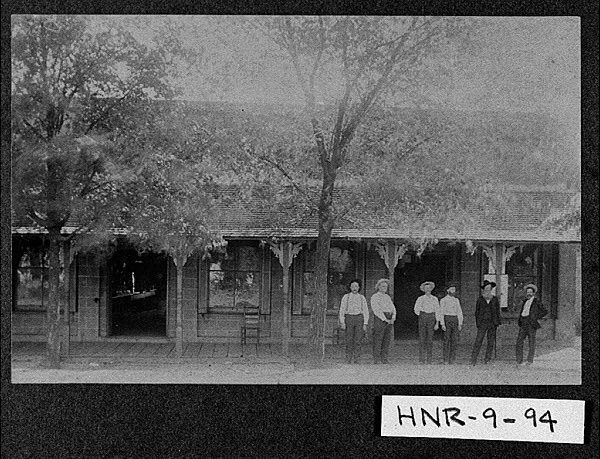Henry County, Georgia’s fifty-second county, comprises 323 square miles in the Atlanta metropolitan area south of the city. Named for Revolutionary War (1775-83) patriot and orator Patrick Henry, it was created in May 1821 by the Georgia Land Lottery Act of that year.
Enacted four months after the Creeks ceded a large portion of their land in the Treaty of Indian Springs, the act named five new counties, Henry among them. McDonough, laid out by the state legislature on the site of a prominent Indian trading post, was incorporated on December 17, 1823, as Henry County’s seat. It was named in honor of Thomas Macdonough, a naval captain who defeated the British fleet on Lake Champlain during the War of 1812 (1812-15). The current courthouse was built in 1897 and restored in 1981. It was placed on the National Register of Historic Places in 1980.

According to the 2020 U.S. census, the county population is 240,712, an increase from the 2010 population of 203,922.
Communities
In addition to McDonough, Henry County’s largest communities are Stockbridge, Hampton, and Locust Grove.
Stockbridge was founded in 1829 when Concord Methodist Church was built near the present town, attracting people who built their homes nearby. It was named after Levi Stockbridge, a noted agriculturalist from Massachusetts. In 1882 the town was relocated a mile south of its first site because the Southern Railroad needed a railroad stop there. Stockbridge was incorporated as a town in 1895 and then as a city in 1920.
Hampton, incorporated in 1872, was named in honor of Confederate general Wade Hampton, grandson and namesake of a major general who fought during the War of 1812. The town had been called Bear Creek before its incorporation. The first Atlanta Pop Festival was held in Hampton in 1969. The town is also home to the Atlanta Motor Speedway, the site of several NASCAR events each year. These races are said to draw more visitors than any other sports event in Georgia.

Locust Grove was incorporated in 1893; its name is said to have come from a grove of locust trees around the former home of an early resident. (There is another Locust Grove, in Taliaferro County.) Locust Grove Institute was opened in 1894 by the local Baptist church and Mercer University. Operating as a college preparatory school until its closure in 1930, the institute’s buildings now form the Locust Grove Municipal Complex.
Economy
Henry County began as the land of pioneering people who invested their labor and time in exchange for land. Agriculture was the mainstay. From the 1840s until the Civil War (1861-65), a number of new towns were built expressly to accommodate the need for depots by the Monroe Railroad and the Georgia Railroad. New counties were carved from some parts of Henry County’s original area, as the railroad towns prospered and gained in population. Henry County suffered the same destruction and impoverishment during the Civil War as the rest of the South, but starting in the 1880s, new railroad construction throughout the county and a major investment in the cultivation of cotton brought the area back to life.

The economy continued to grow vigorously until 1920, when the invasion of the boll weevil brought it crashing to a stop. Five years later, a terrible drought caused an economic downturn that lasted until the beginning of the World War II (1941-45), adding to the county’s woes. With the war, farming declined, but the population increased as Georgians flocked to Atlanta for employment and began finding homes in Henry County. This trend escalated in 1969, when Interstate 75 opened the entire county and made traveling to Atlanta easier. New shopping centers, schools, housing developments, and churches have sprung up throughout the county to accommodate this new population.
Highlights
Among Henry County’s points of interest are Panola Mountain State Conservation Park, a 537-acre park surrounding Panola Mountain, east of Stockbridge; the 1826 Brown House, home of the Henry County Historical Society in McDonough; and Shingleroof Methodist Campground in McDonough, a camp meeting site since 1830.
Notable persons who once lived in Henry County include Martin Luther King Sr., the father of Martin Luther King Jr., who was born in Stockbridge, and James Weldon Johnson, a poet, teacher, diplomat, and early leader of the National Association for the Advancement of Colored People. Johnson taught for two summers in Hampton while studying at Atlanta University in the early 1890s.


































